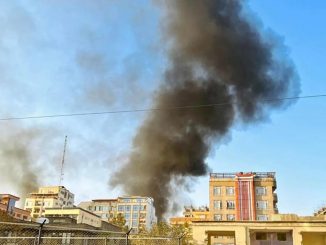
| Published April 27, 2029
a devastating terrorist attack occurred in Baisaran Valley, near Pahalgam in Indian-administered Kashmir, resulting in the deaths of 26 tourists, including a Nepali national, and injuring over 20 others. The assailants, reportedly five militants armed with AK-47s and M4 carbines, targeted a group of predominantly Hindu tourists, allegedly verifying their identities before opening fire. This incident marks one of the deadliest attacks on civilians in the region in recent years.
In the aftermath, the Resistance Front (TRF), an offshoot of the Pakistan-based Lashkar-e-Taiba, initially claimed responsibility but later retracted their statement. India has accused Pakistan of supporting cross-border terrorism, leading to heightened tensions between the two nations. In response, India suspended the Indus Waters Treaty, expelled Pakistani diplomats, and increased military activities along the Line of Control (LoC).
The National Investigation Agency (NIA) has taken over the investigation, focusing on identifying local collaborators who may have aided the attackers. Security forces have intensified operations in the region, detaining suspects and demolishing properties linked to militant activities.
Prime Minister Narendra Modi condemned the attack, stating that the perpetrators would face the “harshest response.” Meanwhile, Pakistan has called for a neutral international investigation, denying involvement and emphasizing a commitment to peace.
The situation remains tense, with both nations exchanging fire across the LoC and diplomatic relations deteriorating. The international community has expressed concern over the escalating conflict, urging restraint and dialogue to prevent further escalation.
Here are the key implications of the Pahalgam terrorist attack and the escalating India–Pakistan tensions:
For India
-
Internal Security Crackdown:
The attack will likely trigger intensified counterterrorism operations in Kashmir and possibly elsewhere, with stronger surveillance and arrests. -
Stronger Nationalist Sentiment:
Prime Minister Modi’s government may leverage public anger to rally nationalistic support, possibly influencing domestic politics and policy. -
Increased Military Activity:
India’s military posture along the Line of Control (LoC) is hardening, raising the risk of skirmishes or limited conflict.
For Pakistan
-
Diplomatic Isolation Risk:
Accusations of harboring militants could further isolate Pakistan internationally, especially if India pushes the narrative at the United Nations or with allies. -
Economic Strain:
Increased tensions could worsen Pakistan’s fragile economy if sanctions or aid cuts follow. -
Pressure to Act:
Islamabad may be forced to show visible action against extremist groups to counter international criticism, whether genuine or symbolic.
For the Region
-
Risk of Broader Conflict:
Continued exchanges of fire could escalate into a larger confrontation, with devastating consequences for both nuclear-armed neighbors. -
Impact on Peace Processes:
Any ongoing back-channel diplomacy between India and Pakistan is likely frozen or reversed, delaying hopes for long-term peace. -
Civilian Suffering:
Border communities face disruption, casualties, and displacement as tensions flare, worsening the humanitarian situation.
Global Implications
-
Concern from Major Powers:
Countries like the U.S., China, and Russia may step in diplomatically to urge restraint, fearing wider regional instability. -
Terrorism Focus Shift:
The attack shifts international attention back to South Asian terrorism networks, which had been somewhat overshadowed by other global conflicts. -
Strained International Relations:
India-Pakistan tensions could complicate wider Indo-Pacific alliances and forums, including India’s relations with Western partners focused on stability.
Overall Takeaway:
The Pahalgam terrorist attack has sharply escalated tensions between India and Pakistan, deepening mistrust and risking wider conflict in a region already marked by volatility. For India, it reinforces a hardline approach to security; for Pakistan, it brings renewed international scrutiny. With military exchanges intensifying and diplomacy breaking down, both nations are walking a dangerous line where a single misstep could ignite a broader crisis — one that would have serious consequences not just for South Asia, but for global stability.
SOURCES: NDTV – Pahalgam Attack Updates: “Blood Of Every Indian On The Boil,” Says PM Modi
AL JAZEERA – ‘Harshest response’ to Pahalgam assault – India’s Modi
THE INDIAN EXPRESS – NIA takes over investigation into Pahalgam terror attack; intensifies evidence collection, identifies local terror aides





Be the first to comment